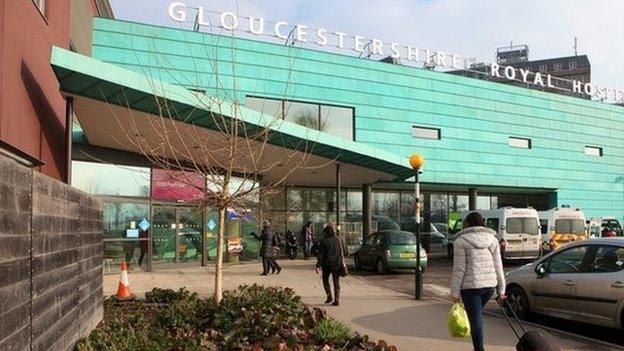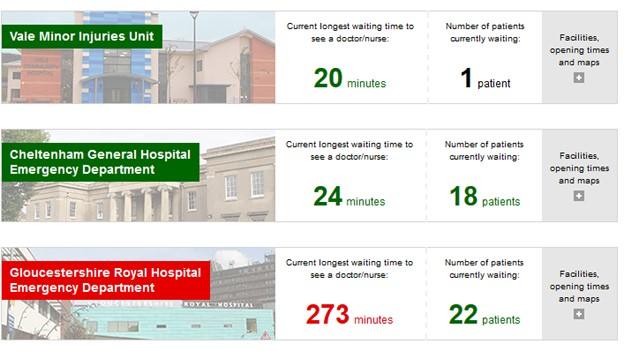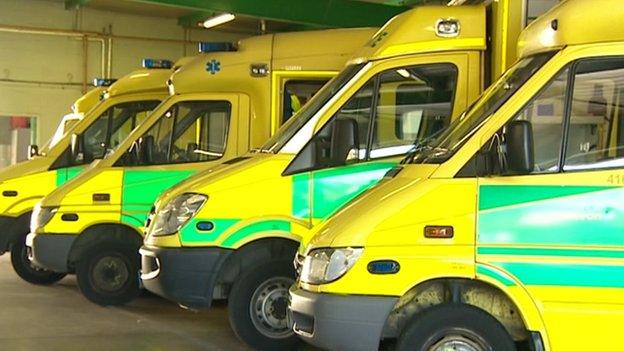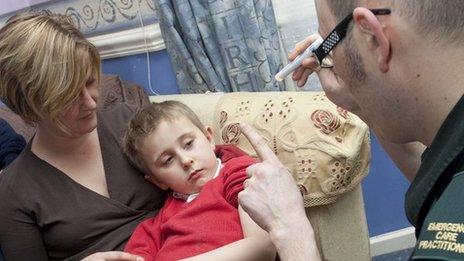Gloucestershire hospitals declare major incident
- Published

Health bosses in Gloucestershire have urged to people to consider if they really need to go to A&E
A major incident has been declared for two hospitals in Gloucestershire, due to high demand in A&E departments.
An NHS spokesman said 30% of people using Gloucestershire Royal and Cheltenham General's emergency departments had "non-urgent ailments".
People have been asked to consider options other than A&E, such as calling the NHS 111 helpline.
It is the second time in a month the NHS Trust has declared the status in order to get extra help.
Gloucestershire Hospitals NHS Foundation Trust said another factor contributing to the current problem was the high number of "elderly patients being admitted, whose needs are often more complex".
'Snowballing effect'
The trust's clinical director, Dr Tom Llewellyn, said the declaration of a major incident meant "stepping up normal management levels" to deal with "an unprecedented demand".
He said the main issues included more patients who were "sicker" and a "cohort of elderly patients with respiratory disease" which meant they stayed longer and filled beds.
"This also means we have to offload some of these patients into community beds and those beds fill up.
"And you can see you get a bit of a snowballing effect, whereby eventually you end up with a situation where the emergency department gets very full," he said.

The Gloucestershire NHS A&E tracker showed a long wait at Monday lunchtime
Dr Llewellyn said it was a "challenging" situation and praised hospital staff for "absorbing all this pressure".
He said they would be working with the ambulance service and the community "to create more capacity" and would open up more beds in the hospital "to absorb this bulge of patients".
Bristol and North Somerset's A&E units are also dealing with high demand, with local health trusts saying they faced "unprecedented demand" over the weekend.
The declaring of a major incident means extra resources can be brought in such as specialist teams, additional staff, equipment and facilities.
Last month, the medical director of NHS England, Sir Bruce Keogh, said the "system is creaking" as winter takes hold.
In order to help, the government has increased its winter resilience funding for the NHS to £700m - 75% more than last year.

'Major incident' definition for local NHS organisations
"Any occurrence that presents serious threat to the health of the community, disruption to the service or causes (or is likely to cause) such numbers or types of casualties as to require special arrangements to be implemented by hospitals, ambulance trusts or other acute or community provider organisations."
Source, external: NHS England Commissioning Board

- Published2 January 2015

- Published4 December 2014
.jpg)
- Published13 November 2014
